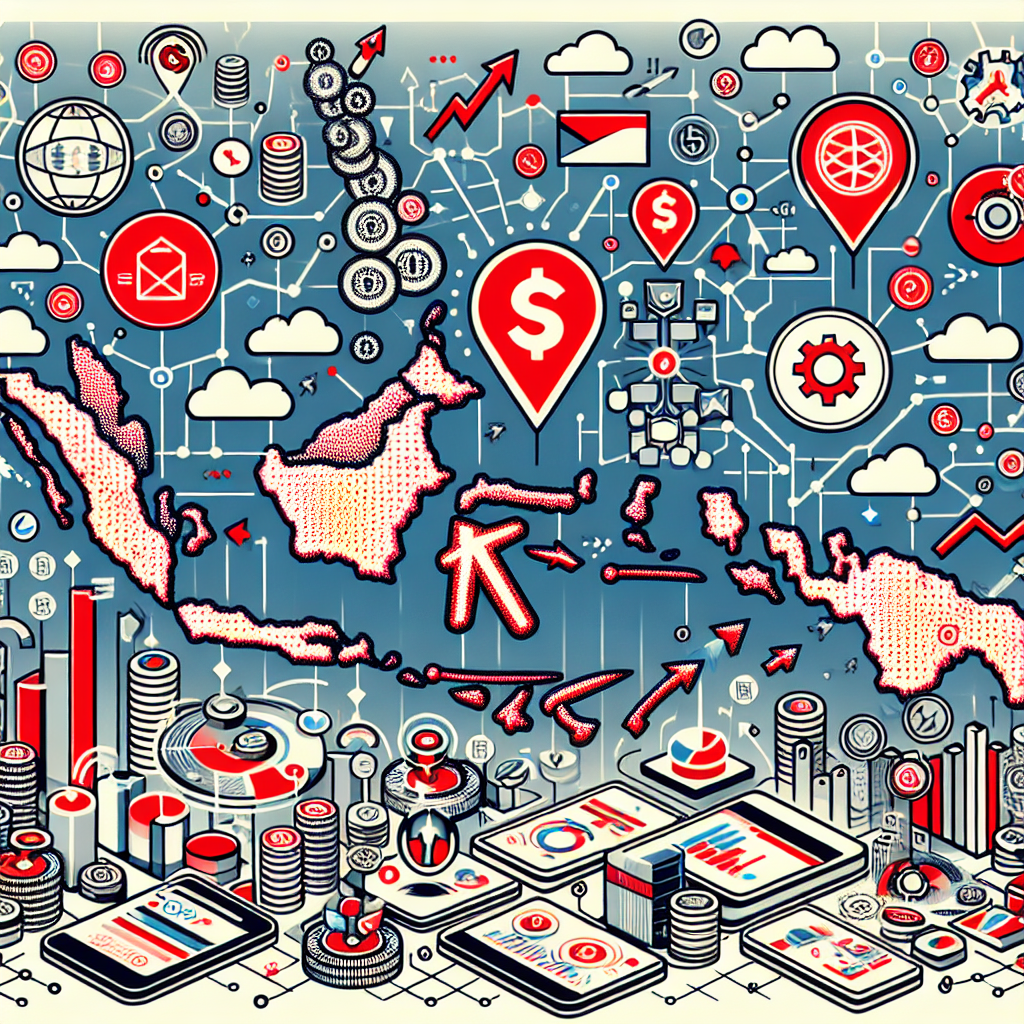Startup Digital berperan penting dalam pertumbuhan ekonomi Indonesia melalui inovasi teknologi dan penciptaan lapangan kerja baru.
Startup Digital dan Pengaruhnya terhadap Pertumbuhan Ekonomi Indonesia
-
Table of Contents
- Introduction
- The Rise of Digital Startups in Indonesia
- 1.1 The Digital Landscape
- 1.2 Government Support
- 1.3 Access to Funding
- The Impact of Digital Startups on the Indonesian Economy
- 2.1 Job Creation
- 2.2 Economic Growth
- 2.3 Innovation and Technology Transfer
- Challenges and Opportunities
- 3.1 Infrastructure
- 3.2 Talent Acquisition
- 3.3 Regulatory Environment
- Conclusion
Introduction

Indonesia, with its vast population and growing economy, has become a hotbed for startups in recent years. The digital revolution has played a significant role in this growth, with startups leveraging technology to disrupt traditional industries and drive economic development. In this article, we will explore the impact of digital startups on the Indonesian economy and how they have contributed to its growth.
The Rise of Digital Startups in Indonesia
1.1 The Digital Landscape
Indonesia has experienced a rapid increase in internet penetration over the past decade. With over 170 million internet users, it is the largest online market in Southeast Asia. This digital transformation has created a fertile ground for startups to thrive, as more and more Indonesians embrace digital technologies in their daily lives.
1.2 Government Support
Recognizing the potential of startups in driving economic growth, the Indonesian government has implemented various initiatives to support the digital ecosystem. One of the most notable programs is the “1,000 Startups Movement,” which aims to create a thousand new startups by 2020. The government has also established regulatory frameworks and provided funding opportunities to encourage entrepreneurship and innovation.
1.3 Access to Funding
Access to funding is crucial for startups to scale and expand their operations. In recent years, Indonesia has witnessed a surge in venture capital investments, with both local and international investors pouring money into promising startups. This influx of capital has provided startups with the necessary resources to develop innovative solutions and compete in the global market.
The Impact of Digital Startups on the Indonesian Economy
2.1 Job Creation
Digital startups have played a significant role in job creation in Indonesia. According to a report by Google and Temasek, the Indonesian internet economy is expected to create 8.7 million jobs by 2025. Startups, with their agile and innovative nature, have been able to adapt to changing market demands and create employment opportunities across various sectors.
2.2 Economic Growth
The growth of digital startups has contributed to the overall economic growth of Indonesia. These startups have disrupted traditional industries, driving efficiency and productivity gains. For example, e-commerce platforms have revolutionized the retail sector, providing consumers with a convenient and accessible way to shop. This has led to increased consumer spending and boosted economic activity.
2.3 Innovation and Technology Transfer
Digital startups are at the forefront of innovation, developing new technologies and solutions that address local challenges. This culture of innovation has led to technology transfer and knowledge sharing, benefiting not only the startup ecosystem but also other industries. Startups have collaborated with established companies to implement digital solutions, driving efficiency and competitiveness.
Challenges and Opportunities
3.1 Infrastructure
While Indonesia has made significant progress in terms of internet penetration, there are still challenges related to infrastructure. Many remote areas lack access to reliable internet connectivity, limiting the reach of digital startups. Addressing these infrastructure gaps is crucial to ensure inclusive growth and enable startups to reach untapped markets.
3.2 Talent Acquisition
Finding and retaining talent is a common challenge faced by startups worldwide, and Indonesia is no exception. Startups require a skilled workforce with expertise in technology and innovation. However, there is a shortage of such talent in the country. To overcome this challenge, startups need to invest in talent development programs and collaborate with educational institutions to bridge the skills gap.
3.3 Regulatory Environment
While the Indonesian government has taken steps to support startups, there are still regulatory challenges that need to be addressed. Complex licensing procedures and unclear regulations can hinder the growth of startups and discourage foreign investments. Streamlining the regulatory environment and providing a conducive ecosystem for startups will attract more investments and foster innovation.
Conclusion
Digital startups have become a driving force behind the growth of the Indonesian economy. With the support of the government, access to funding, and a growing digital landscape, startups have created jobs, driven economic growth, and fostered innovation. However, challenges related to infrastructure, talent acquisition, and the regulatory environment need to be addressed to sustain this growth. By overcoming these challenges, Indonesia can continue to nurture its startup ecosystem and solidify its position as a regional leader in the digital economy.







